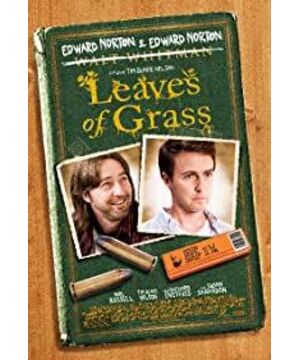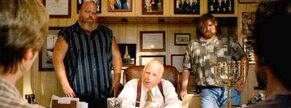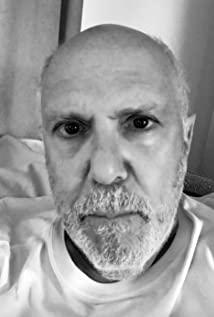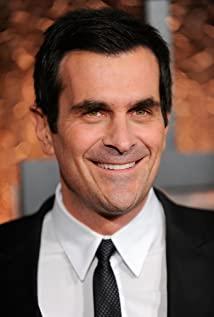Woody Allen's "The Unreasonable", like this one, tries to use philosophical storytelling to play literature and art, but the latter story is more tortuous and vivid than the former, and the turns are more unexpected, although some are designed to achieve dramatic effects. The sense of coincidence is stronger For example, brother Billy was tricked back by his brother Brody's friend who lied that he was shot by a crossbow, and then he broke up with the drug dealer and was shot; Brody's friend said that Brody had broken the law to protect him. Prison, I don't know how to repay him, and later this friend saved Billy's life; the dentist I met on the plane happened to see Brody at the church, deduced what the whole thing was about, and so on.
Some of Billy's philosophical dialogues with his English teacher, as well as several poetry quotes, are very beautiful, and they are closely connected with the lives of the characters. An English teacher and poet is also a good fisherman. He just sat on the shore and read to Billy Whitman and her own poems after catching fish. Billy was surprised and admired:
"I really didn't expect anyone to be here. Whitman's poems in
this situation." "This is the right situation to read his poems."
If Billy used to study the classical philosophy of the bright spring and white snow, and deliberately kept a distance from the life in the fields and the illiterate country people, this is the case. At that time his prejudices were under attack. He can finally start to re-examine the people and things he's trying to avoid, the things he hates, the accents he's trying to get rid of, and he's starting to re-think where he came from: a moment of self-discovery. These metaphysical, thought-provoking fragments and the style of the whole film black comedy are combined together to form a wonderful chemical reaction, just like Nuo Dun playing two roles: one side is fresh literature and art, and the other is to build his own The spiritual home; the other side is the ugly helplessness and absurdity of life, dripping with blood.
What can we learn from Billy: Billy hadn't seen his mother for 12 years, and he reluctantly mentioned in the unpleasant conversation after meeting that, in order to try to understand his mother, he specially took a 60 course A lesson in period culture. Later, he told the English teacher that he was very afraid of the heavy rain in summer, so he went to read a lot of information about the rainstorm, figured out how it was generated, and memorized the names of various clouds, but the rainstorm continued as usual. Maybe knowing his mother's way of thinking and acting wasn't enough for Billy to understand and forgive her, maybe knowing everything about the rainstorm and still fearing it the same. Knowledge is powerless in the face of deep-rooted resentment and inexplicable fear. However, I still admire Billy's efforts: in the unknowable world, he tried to exert his own subjective initiative to explore and understand. It was this academic spirit that allowed him to open up his own world in classical philosophy.
About Leaves of Grass: Americans really love Whitman's eclectic style: it appeared several times in Breaking Bad, and the old White's former colleague's Leaf of Grass set appeared where it shouldn't. Coupled with the association of Walter Whitman and Walter White with the same initials, the brother-in-law discovers his secret, and the book serves as the key evidence. The title of this film is simply the leaves of grass, which is a pun, referring to both the poems my brother read and the marijuana grown by my younger brother. At the end of the film, Billy and the female teacher intertwined their fingers on a leaf of grass, sitting in the garden, feeling the coming summer rainstorm, like the end of fight club.
PS I have to say that Nutton checks the script and sometimes participates in the production, so as to avoid being cannon fodder in bad films~ Blades of Grass is the 14th part of Nuoton's film completion plan, and I haven't touched it yet except The Score. Been disappointed.
View more about Leaves of Grass reviews











